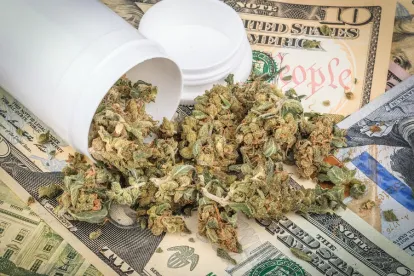In a case of first impression, the New Jersey Appellate Division determined that employers in the state must reimburse employees for medical cannabis following a workplace accident, despite federal prohibitions against cannabis distribution. The January 13, 2020 decision in Hager v. M&K Construction, Case No. A-0102-18T3, is the first time a court in the state has required reimbursement for a cannabis prescription in the workers’ compensation context, and may signal a fresh judicial focus on the scope of lawful medical cannabis use in the employment context both in New Jersey and in states with similar laws.
The Hager decision has clear implications for New Jersey employers, who are now required to reimburse injured employees for medical cannabis (at least under circumstances similar to those presented in the case). Employers in other states that have legalized medical cannabis but have yet to rule on the interplay between the Controlled Substances Act (“CSA”) and state law in workers’ compensation disputes should also take note in the event that similar reimbursement requests arise.
Petitioner Vincent Hager (“Hager”) was employed by respondent M&K Construction (“M&K”) when he was crushed by a load dropped by a concrete delivery truck, resulting in spinal injury and chronic back pain. After lumbar fusion failed to address his pain and he became addicted to prescribed opioid medication, Hager found both pain relief and an opioid alternative through medical cannabis prescribed by his doctor in accordance with New Jersey’s Compassionate Use Medical Marijuana Act (the “MMA”). Hager sought reimbursement from M&K for the prescribed cannabis under applicable workers’ compensation statutes. M&K rejected the request and refused to remit payment. A judge of compensation determined that M&K was obligated under the MMA and relevant workers’ compensation law to reimburse Hager for the cost of medical cannabis and related expenses, noting that medical cannabis was a preferable choice for Hager because it relieved his pain and allowed him to overcome his opioid addiction. M&K appealed, arguing, among other things, that it was impossible to simultaneously comply with the MMA and the federal CSA, which makes it a crime to “manufacture, possess or distribute” cannabis. Accordingly, M&K contended that, because the CSA preempted the MMA, it could not be required to reimburse Hager for his medical cannabis costs.
The Appellate Division affirmed the judge of compensation’s order, overruling M&K’s objection. Specifically, the Appellate Division ruled that the CSA did not preempt the MMA, and that no conflict existed between the two statutes because M&K was not “require[d] to possess, manufacture or distribute [cannabis], but only to reimburse petitioner for his purchase[.]”[1] The court further determined that M&K’s compliance with the judge of compensation’s order would not make it liable for aiding and abetting a CSA violation because the company was simply obligated to comply with a lawful directive, and, thus, would not exhibit the requisite intent or active participation necessary for the aiding and abetting liability to attach. Finally, the Appellate Division confirmed that medical cannabis may be a “reasonable and necessary” form of treatment under New Jersey’s Workers’ Compensation Act, particularly where a petitioner demonstrates unsuccessful attempts to alleviate severe or chronic pain and the efficacy of medical cannabis over other treatment modalities.
We will continue to monitor the impact of the Hager decision and provide additional information as it becomes available.
[1] To date, only three states, including New Jersey, have considered whether the CSA preempts state law legalizing medical cannabis in connection with workers’ compensation reimbursement obligations. Through this ruling, New Jersey joined New Mexico in holding that the CSA does not preempt state medical cannabis laws. Maine, by contrast, reached the opposite conclusion in 2018.


 />i
/>i

